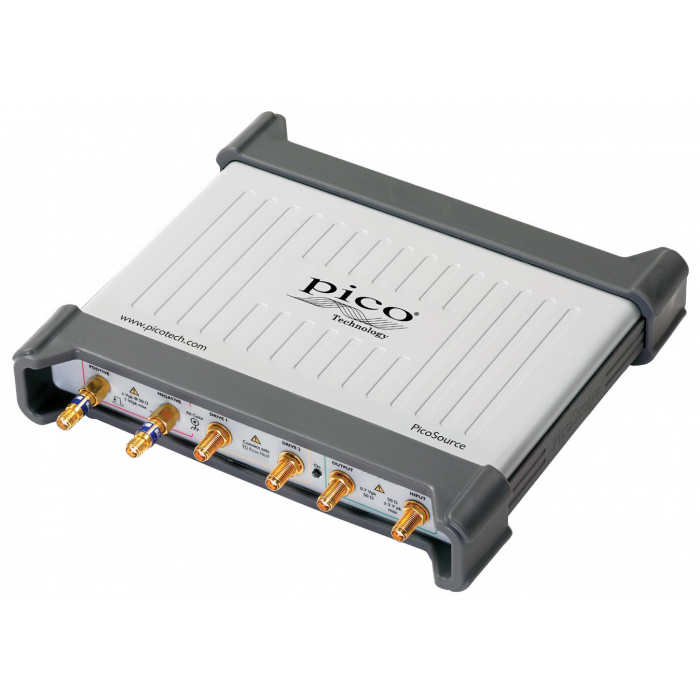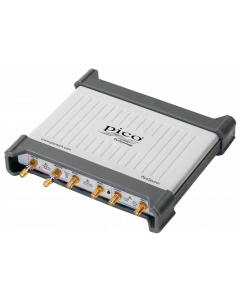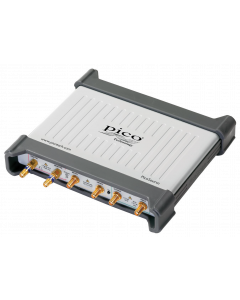
PG914
PG914
Pico Technology
Pico Technology PG914 Pulse Generator, 1 GHz, 4 Channel
PG914, PicoSource PG900 Series - USB differential pulse generators
The fast-transition pulse can stimulate a transmission path, device, or network with a broad spectrum signal in a single instant. These signals, combined with differential capability, are valuable for making high-speed broadband measurements in many fields such as time domain reflectometry, semiconductor testing, gigabit interconnect and port testing and radar systems.
High-speed differential data is becoming the dominant measurement challenge in digital, computing, interconnect and telecommunications systems. Despite this need, cost-effective, fast transition differential pulse generators were hard to find, until now.
A versatile, portable pulse generator
The PicoSource PG900 Series of low-jitter triggered differential USB pulse generators offer a range of advanced features:
- The pulse outputs are optimized for broad spectral content (fastest transition time) to best suit spectral and time-domain transmission and reflectometry measurements
- The internal clock provides stand-alone, self-triggered operation
- Trigger input and output allow the pulse generators to source or respond to system triggers
- Differential outputs ensure that the proliferation of gigabit differential interconnects and systems (such as SATA, USB3, HDMI and Ethernet) can all be addressed
All PicoSource PG900 Model Features:
- Differential outputs
- 200 ns to 4-microsecond pulse width
- Adjustable 1 microsecond to 1 s internal clock period
- Typical 3.0 ps RMS jitter relative to an external trigger
Essential to any differential measurement is the ability to adjust for small but significant velocity and path length differences that are bound to exist in any measurement setup. The PicoSource PG900 pulse generator outputs can each be adjusted (time-skewed) by 1 ns (integrated pulse outputs) or 200 ps (tunnel diode pulse heads) in 1 ps increments to deskew path differences before the measurement, or to deliberately stress a transmission path with timing skew.
Despite their small size and portability, PicoSource pulse generators have plenty of drive capability, with integrated step recovery diode outputs of up to 6 V pk each into 50 Ω. That’s a powerful 12 V pk differential pulse amplitude to drive lossy paths or stress system ports. Outputs are adjustable in 10 mV steps down to 2.5 V pk. An adjustable amplitude limit is provided to protect sensitive devices, and 20 dB attenuators are supplied fitted to the pulse outputs for small-signal optimal match applications.
Click below to request a quote for this item. Or for product advice, stock and lead time enquiries call our team on 0330 313 3220.
| Attribute | Value |
|---|---|
| Key Features |
|
| Channels | 4 |
| Whats Included |
|
| Software |
PicoSource PG900 Software:The PicoSource PG900 Series generators are USB-controlled from a Microsoft Windows PC running PicoSource PG900 software that is provided with the product. This is a very straightforward control application featuring a helpful graphical display of the pulse, limits and trigger settings as they are applied. Default and User pulse settings can be saved for future recall. The pulse and trigger waveform displays can be toggled between three timebase settings to show the timing relationship of trigger and pulse, the pulse period or the pulse train being output. |
| Attribute | Value |
|---|---|
| Data Sheet | Click here to view |



